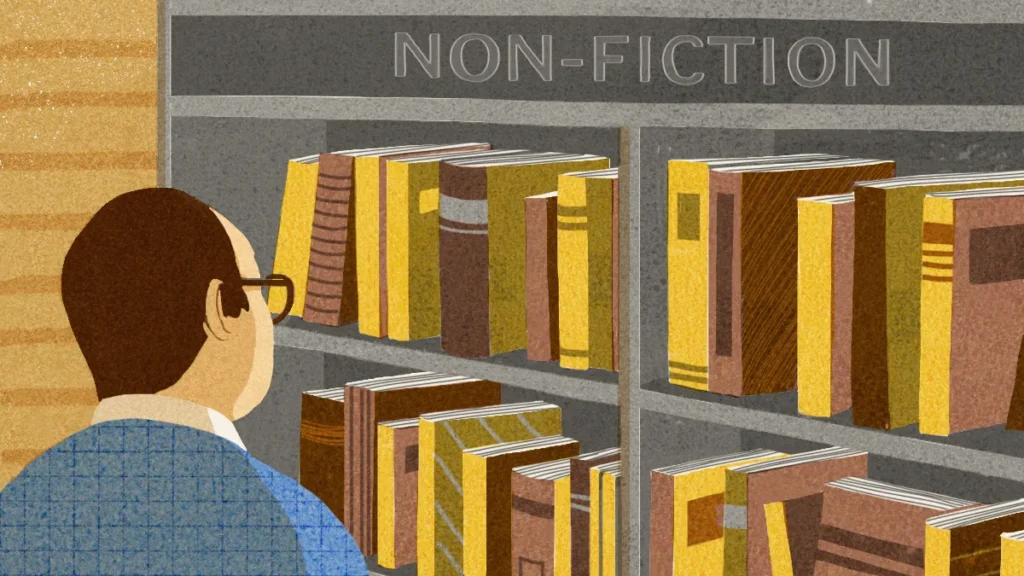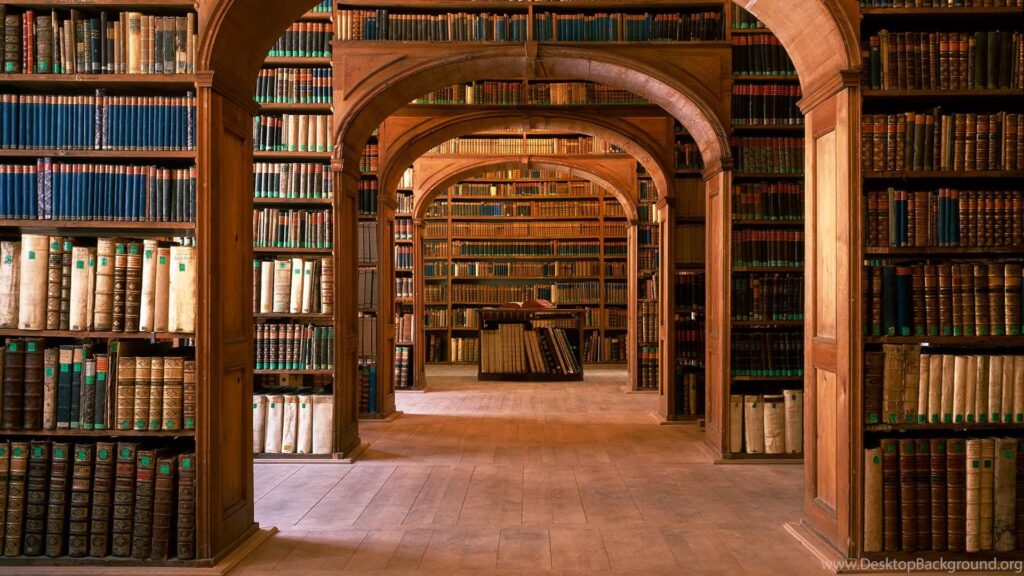Books have been a part of human culture for centuries, providing knowledge, entertainment, and a window into the vast expanse of human experience. But when it comes to selecting a book, one of the most fundamental distinctions we make is between fiction and nonfiction. So, what exactly sets a fiction book apart from a nonfiction book? Let’s dive into the fascinating world of books and explore the differences and unique qualities of each.
Defining Fiction
Fiction books are works of narrative prose that stem from the imagination of the author. These stories are not necessarily based on real events, although they may draw inspiration from reality. Think of fiction as a canvas where authors paint with words, creating worlds, characters, and plots that captivate the reader’s imagination.
Imaginary Worlds
Fiction allows readers to escape into imaginary worlds. Whether it’s the magical realms of fantasy or the gritty streets of a detective novel, fiction offers a wide range of settings and scenarios.
Character Development
In fiction, characters are often deeply developed, with rich backstories, personalities, and arcs that drive the narrative forward.
Defining Nonfiction

Nonfiction books are based on factual information, real events, and actual people. These works aim to inform, educate, or document reality. Nonfiction encompasses a broad spectrum of subjects, from history and biographies to self-help and science.
Real-World Focus
Nonfiction is grounded in the real world. Authors of nonfiction meticulously research their topics to provide accurate and reliable information.
Educational Intent
Nonfiction often seeks to educate the reader about a particular subject, providing insights, data, and real-life examples.
Key Differences
While both fiction and nonfiction books can be engaging and enlightening, they differ in several key ways.
Basis in Reality
The primary difference lies in their foundation: fiction is imaginary, while nonfiction is factual.
Purpose
Fiction aims to entertain and evoke emotions, whereas nonfiction focuses on informing and educating.
Creative Freedom
Fiction offers more creative freedom, allowing authors to explore imaginative scenarios. Nonfiction, on the other hand, requires adherence to facts and real-world accuracy.
Storytelling in Fiction
Storytelling in fiction is all about crafting a compelling narrative. Authors use various literary techniques to draw readers into the story.
Plot and Structure
A strong plot with a clear beginning, middle, and end is crucial in fiction. The structure may include twists, conflicts, and resolutions that keep readers hooked.
Literary Devices
Authors employ literary devices like metaphors, similes, and symbolism to add depth and meaning to the narrative.
Storytelling in Nonfiction
While nonfiction also tells stories, the approach is different. The focus is on delivering factual information in an engaging manner.
Narrative Nonfiction
Narrative nonfiction, like biographies and memoirs, uses storytelling techniques to make real events more compelling and relatable.
Expository Nonfiction
Expository nonfiction, such as textbooks and manuals, focuses on explaining and informing, often using a straightforward and structured approach.
Purpose and Goals
Understanding the purpose and goals of each type of book can help readers choose the right one for their needs.
Fiction: Entertain and Evoke
The primary goal of fiction is to entertain. Whether it’s making readers laugh, cry, or sit on the edge of their seats, fiction aims to evoke a strong emotional response.
Nonfiction: Inform and Educate
Nonfiction aims to inform and educate readers about real-world subjects, providing knowledge, insights, and practical information.
Genres within Fiction

Fiction is a vast and diverse genre, encompassing many subgenres.
Fantasy and Science Fiction
These genres explore imaginative and futuristic worlds, often involving magic, advanced technology, and otherworldly creatures.
Mystery and Thriller
Mystery and thriller books keep readers on their toes with suspenseful plots, twists, and turns.
Romance
Romance novels focus on love stories, exploring relationships and emotional connections.
Genres within Nonfiction
Nonfiction also spans a wide range of genres, each with its own focus.
Biographies and Memoirs
These books tell the true stories of individuals’ lives, providing insights into their experiences and achievements.
Self-Help and Personal Development
Self-help books offer guidance and advice on personal growth, health, and well-being.
History and Science
History and science books delve into past events and scientific discoveries, educating readers about the world and universe.
Emotional Engagement
Both fiction and nonfiction can engage readers emotionally, but they do so in different ways.
Fiction’s Emotional Journey
Fiction books take readers on an emotional journey through the experiences of characters, making them feel a wide range of emotions.
Nonfiction’s Real-Life Impact
Nonfiction books can have a profound emotional impact by connecting readers with real-life events and personal stories.
Educational Value
While nonfiction is typically more educational, fiction can also offer valuable lessons.
Learning through Fiction
Fiction can teach empathy, cultural awareness, and moral lessons through its stories and characters.
Nonfiction’s In-Depth Knowledge
Nonfiction provides in-depth knowledge on specific subjects, offering readers a deeper understanding of real-world topics.
Famous Fiction Works
Many fiction books have become classics, beloved by readers for generations.
Timeless Classics
Books like “Pride and Prejudice” by Jane Austen and “1984” by George Orwell continue to captivate readers with their timeless themes and storytelling.
Modern Masterpieces
Modern fiction works like “The Harry Potter Series” by J.K. Rowling and “The Hunger Games” by Suzanne Collins have also made a significant impact.
Famous Nonfiction Works
Nonfiction books have also left a lasting legacy, shaping our understanding of the world.
Influential Biographies
Biographies like “The Diary of a Young Girl” by Anne Frank and “Steve Jobs” by Walter Isaacson offer deep insights into the lives of remarkable individuals.
Groundbreaking Studies
Books like “Sapiens: A Brief History of Humankind” by Yuval Noah Harari and “The Immortal Life of Henrietta Lacks” by Rebecca Skloot provide groundbreaking insights into history and science.
Impact on Readers
Both fiction and nonfiction books can have a significant impact on readers, shaping their thoughts, feelings, and perspectives.
Fiction’s Influence
Fiction can inspire creativity, empathy, and a deeper understanding of human nature.
Nonfiction’s Contribution
Nonfiction contributes to our knowledge, critical thinking, and awareness of the world around us.
How to Choose Between Them
Choosing between fiction and nonfiction depends on your interests, needs, and mood.
What Are You Looking For?
If you’re seeking entertainment and an emotional journey, fiction is the way to go. If you want to learn something new and gain knowledge, pick up a nonfiction book.
Mixing It Up
Don’t be afraid to mix it up! Both genres offer unique benefits, and exploring both can enrich your reading experience.
Conclusion
In the world of books, both fiction and nonfiction have their own unique charm and value. Fiction captivates our imagination and emotions, while nonfiction grounds us in reality and expands our knowledge. Understanding the differences and appreciating the strengths of each can enhance your reading journey, allowing you to choose the perfect book for any moment.
FAQs
1. What is the main difference between fiction and nonfiction books?
The main difference is that fiction is based on imagination and storytelling, while nonfiction is based on factual information and real events.
2. Can fiction books be educational?
Yes, fiction books can be educational by teaching empathy, cultural awareness, and moral lessons through their stories and characters.
3. What are some popular nonfiction genres?
Popular nonfiction genres include biographies, memoirs, self-help, personal development, history, and science.
4. How do I choose between a fiction and a nonfiction book?
Consider your current interests and needs. If you want entertainment and an emotional journey, choose fiction. If you want to learn something new, choose nonfiction.
5. Are there any books that blend fiction and nonfiction?
Yes, some books blend elements of both genres, such as historical fiction, which uses factual historical settings and events to tell fictional stories.

